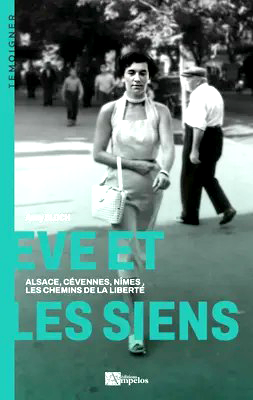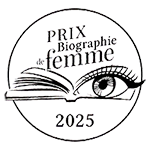Ève and Her Family – Alsace, Cévennes, Nîmes – The Paths of Freedom, Ampelos Editions, 176 pages, 2025
For this work, I received the Women’s Biography Prize awarded by the French Association of University Women (AFFDU) and by University Women of Europe (UWE)
Abstract

Ève, a twenty-year-old Jewish woman from eastern France, lived with her family in hiding in the south of France in 1940, seeking refuge in a Cévennes village to escape persecution. Thanks to the kindness of the locals, caution, and luck, she and her family survived.
This biographical account unpacks the process of women’s emancipation in the post-war years. Ève comes from a bourgeois background, is fatherless, married, and a mother of three. How will she organise her life and free herself from her family’s control? What resources does she have to turn the page on the war years and choose a life that fits her aspirations?
She has many talents but no formal professional training.
Initially, she needs recognition—as a woman before being a mother and wife. Were there pathways open in the 1950s and 60s?
Gradually, Ève becomes aware of the contradictions within her. She desires to break free from the narrow world around her, to discover a new universe and choose her partner. She faces the incomprehension of those close to her and confronts new obstacles: being accepted in a new world with different beliefs and customs.
A challenge indeed! Will Ève overcome these difficulties and separate herself from her old world?
Back cover blurb.
Refugees in Nîmes in October 1940, Eve (20 years old) and her husband Max, young Jewish people from Lorraine, had to hide in the Cévennes, in Vialas, a Protestant village. They survived thanks to the kindness of the local population, caution, and luck.
At the liberation, settled in Nîmes and ruined by the exodus, they began a new chapter of their lives at a time when women were discovering independence and freedom.
This biographical narrative, written through the eyes of her daughter, bears witness to the emancipation of a woman in the 1950s-60s, torn between her education as a young bourgeois Jew, her situation as a modest mother, and her aspirations for a freer life. She faces the incomprehension of those around her and the difficulty of being accepted in the bourgeois world of her Camargue Protestant lover.
Eve’s life perfectly illustrates the challenge of freedom for many women of the 1950s-60s, whose emerging feminism sought to break the constraints of family and society
